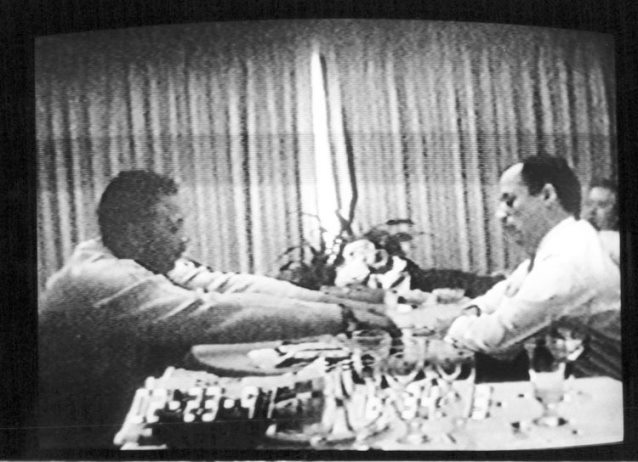
Former Detroit Police Sgt. James Harris, left, is shown taking $50,000 from undercover FBI agent Mike Castro, in exchange for protecting an international shipment of 100 kg. of cocaine. Castro was was posing as a drug dealer Harris was later convicted and spent 20 years in federal prison. (FBI photo)
Rimmer-Bey: I refused to sell drugs for Harris, knew that he would set me up or kill me
Account confirmed by 1970’s neighbor who refused Harris’ demand to testify against Rimmer-Bey
Michigan Supreme Court overturned co-defendant Timothy Jordan’s conviction in 1982; Timothy Kenny, WCC Court Chief Judge, was trial AP
Harris convicted in 1992 for using Detroit cops to protect wholesale cocaine suppliers, given 30 yrs.; Pres. G.W. Bush commuted sentence after 20 yrs.
While part of S.T.R.E.S.S., Harris led “Rochester Street Massacre,” killing Dep. Sheriff and wounding others; Harris and 2 cops charged with murder
A PDF of this article is now available for download http://voiceofdetroit.net/wp-content/uploads/MICHIGAN-LIFER-RICKY-RIMMER-BEY-VOD-Article.pdf.
PUT DIRTY COP JAMES HARRIS ON BRADY LIST—INVESTIGATE CASE OF RICKY RIMMER-BEY
By Diane Bukowski
Aug. 3, 2020
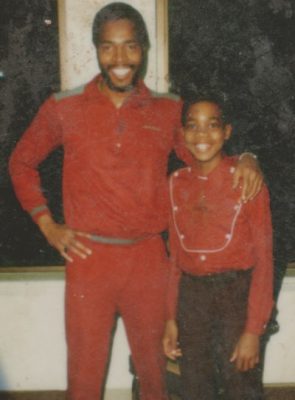
Ricky Rimmer as youth, with nephew./Family photo
DETROIT—“[James] Harris was a dirty cop. He wanted me to sell drugs in the neighborhood for him and I refused . . . I knew that he would set me up or kill me. He did both when he put me in here for the rest of my life!”
Ricky Rimmer-Bey, now 66, used these words in a letter to his attorney, dated Feb. 12, 2020, to explain why he is claiming actual innocence, as he has throughout 44 years of incarceration, and seeking his freedom and exoneration.
He was convicted of first-degree felony murder in 1976, when he was 22, for the death of a car dealer on Detroit’s east side.
The officer-in-charge of his case was DPD Sgt. James Harris (shown above) who was himself convicted in 1992 for using police officers and cars to protect drug dealers bringing international shipments of cocaine to Detroit.
Rimmer-Bey’s mother Mrs. Lovie Rimmer told VOD July 30 that Harris took advantage of her hospitality before arresting her son in their home at 9170 Holcomb in 1975, dining on steak dinners she cooked for nine days straight. She said he told her he was trying to protect her son, not get him sentenced to prison for life. She said Harris arrested Rimmer-Bey without explanation after the dinners, threatening to kill him, as she watched.
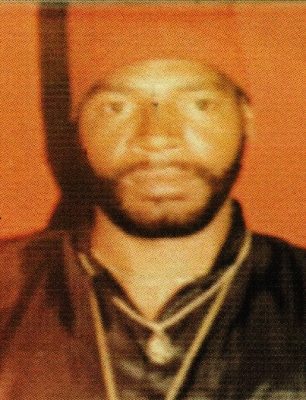
Ricky Rimmer-Bey in cover photo from “My Measure.”
Mrs. Rimmer said she had seven children, with Ricky being the youngest of her sons. Rimmer-Bey recounted the days of his childhood in a short autobiography, “My Measure,” published in pamphlet form.
He said the family first lived on Meldrum Street, in the Black Bottom community, then moved to a two-family flat at Montclair at East Jefferson in the 1960’s, with both parents working to support the household.
He recounted traumatic incidents that happened in those years, including watching a man commit suicide by lying down on railroad tracks, and later watching a drug dealer severely beat a man with a baseball bat.
He said neighborhood children never received counseling from Detroit Public Schools social workers for those and other traumatic incidents they experienced.
WILLIAM MESSENGER SR.: HARRIS TRIED TO MAKE ME LIE ON RICKY
William H. Messenger, Sr. lived in Rimmer-Bey’s neighborhood on Knodell in the 1970’s. In a sworn affidavit, he said Harris tried to get him to testify falsely against Rimmer-Bey during his preliminary exam, but he refused.
“Ricky was arrested on an armed robbery murder charge that no one in our neighborhood believed he did,” he said in a sworn affidavit, adding that another man was likely guilty of the crime.

DPD Sgt. James Harris at HQ,
“In 1975, Detective Harris, who was the head of Squad Seven homicide division, was routinely assigned to patrol our community,” Messenger continued. “It was known to everyone that he was a corrupt dirty cop. He had a reputation for getting street guys to say they saw or heard about someone committing a murder or robbery—people who had nothing to do with the crime. . .
“I personally told Detective Harris when he stopped me on the streets, and again in the witness room at the Frank Murphy Hall, that Ricky had nothing to do with this crime. His response was, ‘I want Rimmer.’”
Messenger called Harris a “corrupt, dangerous criminal,” and a “destroyer of life of those he was sworn to protect and serve.” He said that even though Harris later ended up in prison himself, “he still left many victims in his wake, like Mr. Ricky Rimmer.”
HARRIS NOT ON WAYNE CO. PROSECUTOR KYM WORTHY’S BRADY LIST
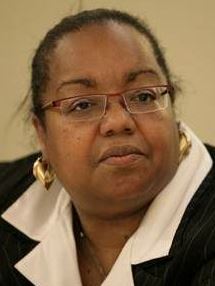
Pros. Kym Worthy
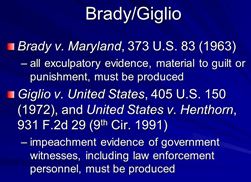 Rimmer-Bey’s story is being brought to light now after Wayne Co. Prosecutor Kym Worthy’s release of a “Giglio-Brady” list on July 16.
Rimmer-Bey’s story is being brought to light now after Wayne Co. Prosecutor Kym Worthy’s release of a “Giglio-Brady” list on July 16.
It named 35 law enforcement officers who had been convicted “for offenses involving theft, dishonesty, fraud, false statement, bias and bribery . . .crimes that can be considered by fact finders in a trial when credibility is being assessed,” according to a release.
The list takes its name from two cases in which the U.S. Supreme Court ruled that prosecutors must disclose all exculpatory evidence that might assist the defendant’s case, including the criminal and disciplinary records of police officers involved.
In her release, Worthy said she would publish an updated list this September, and quarterly thereafter. See current list at http://voiceofdetroit.net/wp-content/uploads/Wayne-County-Prosecutor-Brady-list-issued-7-16-20.pdf
In other jurisdictions, prosecutors and city officials are aggressively pursuing dirty cops and the false convictions they engineered.
BALTIMORE: MOSBY TOSSES 790 CONVICTIONS, SENDS COPS TO PRISON
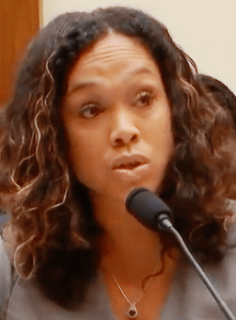
Baltimore City State’s Atty. Marilyn Mosby
Baltimore City State’s Attorney Marilyn Mosby has begun asking judges to throw out nearly 800 convictions that she said were tainted by officers linked to a corruption scandal, according to an AP report Oct. 5, 2019.
“The Baltimore Sun reported Friday that State’s Attorney Marilyn Mosby’s review found 790 criminal cases handled by 25 city officers whom she says she has reason to distrust,” says the article.
“Mosby updated the number of officers being scrutinized on Friday, saying it could fluctuate as her office investigates.
“Eight members of the Gun Trace Task Force were convicted of racketeering crimes and sentenced to prison. Many of the other 17 officers cited by Mosby’s office were named in testimony during the federal trial, though not necessarily charged with crimes. Mosby’s office hasn’t disclosed all of their names because of ongoing federal investigations.”
https://wjla.com/news/local/baltimore-prosecutor-wants-790-tainted-convictions-erased-10-05-2019
NYC CCRB RELEASES BRADY LIST WITH 3,996 COPS, 12,056 COMPLAINTS
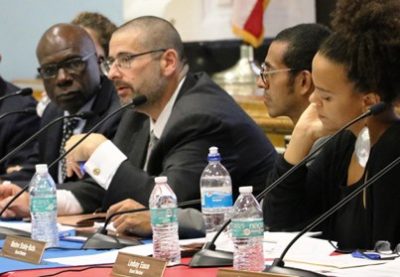
NYC Civilian Complaint Review Board
The New York City Citizen Complaint Review Board (CCRB) compiled a list of 3,996 officers with 12,056 complaints, at least one of which had been substantiated for each officer. The list covered complaints going back two decades.
Although the list, released to the American Civil Liberties Union, is currently under court review pending a court hearing, the online newspaper ProPublica published it.
The list includes four categories of complaints: FORCE: 7,636 (Officer used excessive or otherwise unnecessary force); ABUSE OFAUTHORITY 20,292 (Officer used police powers to take unwarranted actions, such as unlawful searches; DISCOURTESY 4,677 (An officer engaged in rude or profane behavior toward a civilian), and OFFENSIVE LANGUAGE 753 (An officer used one or more slurs relating to race, ethnicity, gender, religion, sexual orientation or disability).
CONVICTIONS ENGINEERED BY HARRIS SHOULD BE INVESTIGATED
The record of former DPD Sgt. James Harris, the chief investigating officer in Rimmer-Bey’s case includes convictions for a number of the offenses outlined by Worthy, as noted in VOD’s earlier story, “Wayne Co. Prosecutor Kym Worthy Must Go; Vote for Victoria Burton-Harris.” VOD emailed Worthy’s office Aug. 3 asking whether Harris’ name would be included in its updated list in September, but has not received a response to date.
‘OPERATION BACKBONE’ SNAGGED HARRIS
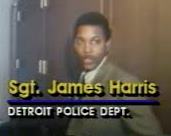
DPD Sgt. James Harris sentenced to 30 years.
In a broadly publicized FBI sting in 1992, known as “Operation Backbone,” Harris was arrested at Detroit City Airport for conspiracy to protect a shipment of 100 kg. of cocaine coming in from Miami. Ten other officers and civilians including Willie Volsan were arrested and charged as well.
Harris, Volsan and three others were convicted. Harris was sentenced to 30 years in prison, 20 of which he served before former U.S. President George W. Bush commuted his sentence.
The Sixth Circuit Court of Appeals refused to overturn the convictions in 1994 (45 F.3d 431 (6th Cir. 1994) Dec. 29, 1994).
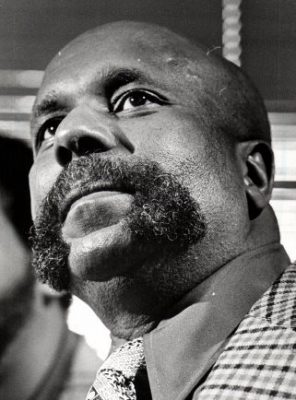
Willie Volsan sentenced to 15 years.
The court said there was sufficient proof that Volsan and Harris “supplied [FBI agent Mike] Castro with police escorts in at least five instances. On each occasion, Agent Castro and another agent, purporting to carry “drug money” to banks in the Detroit area for laundering purposes, would be accompanied by Detroit police officers. On each occasion, Agent Castro arranged to pay each police officer $3,000.
“Eventually, defendants Volsan and Harris also arranged to provide police escorts for Castro’s drug shipments. In exchange for protecting each 100 kg. cocaine shipment, the participants would split $50,000 among themselves.”
Volsan got 15 years in prison as a result of the sting, and the others got lesser sentences. U.S. District Court Judge Barbara Hackett, who sentenced them, said “The only thing James Harris regretted was getting caught.’
See: http://voiceofdetroit.net/wp-content/uploads/James-Harris-Ex-Cop-Gets-30-Year-Term-Freep.pdf.
http://voiceofdetroit.net/wp-content/uploads/Sixth-Circuit-1994-ruling-USA-V-James-Harris-et-al.pdf
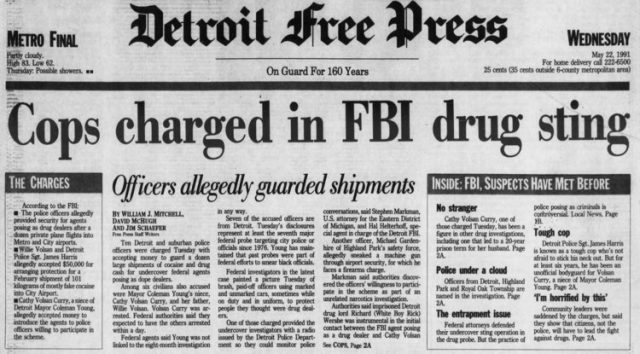
S.T.R.E.S.S, HARRIS, ROCHESTER ST. MASSACRE
In 1972, Harris was a member of DPD’s notorious S.T.R.E.S.S. (Stop the Robberies, Enjoy Safe Streets) unit, which killed 26 Black unarmed civilians, including one woman, during its existence. Detroiters rose up in a massive movement that eventually got Detroit’s first Black Mayor Coleman Young elected on promises to disband S.T.R.E.S.S.
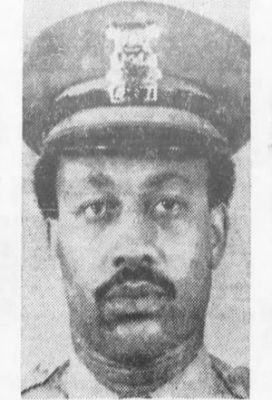
Deputy Henry Henderson
Wayne County Prosecutor William Cahalan charged Harris and two other S.T.R.E.S.S. cops with murder, attempted murder, felonious assault, and felony firearm with intent to commit murder, during what came to be known as the “Rochester Street Massacre.”
Harris and four other DPD S.T.R.E.S.S. officers conducted a midnight raid on a Rochester Street apartment on March 9, 1972. Five deputy sheriffs and a civilian were playing poker. Harris and Ronald Martin led the attack, after seeing a sheriff’s deputy in street clothes enter the building with his weapon. (Deputies are required to carry their weapons while off-duty.)
They shot and killed Wayne County deputy sheriff Henry Henderson, shot and permanently injured deputy sheriff James Jankins, and shot and beat Deputy Henry Duvall.
Duvall was working undercover for an FBI narcotics unit at the time, according to an account given by Robert Ankony, a retired FBI agent. Ankony’s detailed account is linked below.
The surviving individuals said the S.T.R.E.S.S. cops began firing without warning, and even continued after the sheriffs showed their badges and identified themselves as law enforcement officers.
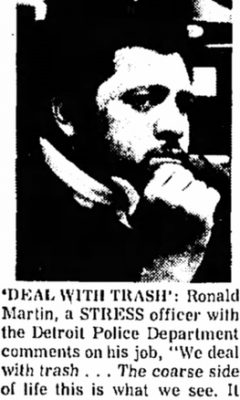
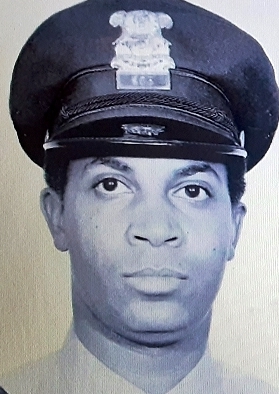
S.T.R.E.S.S. cop James Harris
One DPD officer who arrived on the scene as back-up tried to stop the S.T.R.E.S.S. cops after recognizing Duvall, being held by Martin with a semi-automatic pistol at his head. Even then, the sheriffs said, the beatings continued.
The incident should have been revealed to Harris’ defense attorneys during his trial, under the provisions of Brady v. Maryland. Duvall’s affiliation with the FBI narcotics unit was a red flag.
The Rochester Street Massacre was a prominent factor in the massive community movement against S.T.R.E.S.S. that developed as the cops kept up their murderous rampage. The movement arose after S.T.R.E.S.S. cops attacked three young activists, Mark Clyde Bethune, John Percy Boyd, and Hayward Brown outside a drug house in Detroit. The three fought back, and two S.T.R.E.S.S. cops were killed.
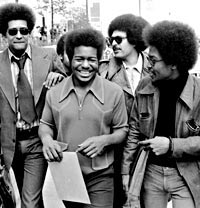
Kenneth Cockrel, Sr. (at left) with Hayward Brown (center).
The entire Detroit police force then launched a massive search for the three young men, kicking in doors across the city without warrants and arresting innocent people as Detroiters rose up in outrage. Bethune and Boyd fled Detroit and were later killed by cops in Atlanta.
Brown was arrested and went on trial. His attorney Kenneth Cockrel, Sr. argued that the three young men were seeking to rid the city of drug houses, and that the S.T.R.E.S.S. cops who attacked them were protecting the drug house in question.
Brown was roundly acquitted of that charge and numerous other charges brought against him afterwards. The movement culminated in the election of Detroit’s first Black Mayor, Coleman Young, who ran on a promise to abolish S.T.R.E.S.S., which became his first act in office in 1974.
Harris was reassigned to the DPD Homicide division, and then inexplicably became a member of Young’s security detail.
https://www.robertankony.com/blog/the-rochester-street-massacre
HARRIS: NO REMORSE, SUPPORTS S.T.R.E.S.S.
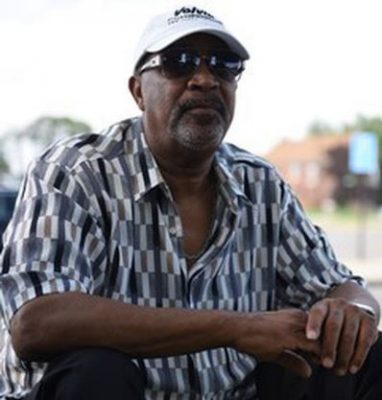
JAMES HARRIS IN 2017: MLive Photo
Paul Egan of the Detroit News wrote about Bush’s commutation of Harris’ sentence. The headline falsely described it as a “pardon.” A commutation leaves the conviction standing.
Egan wrote, “Harris has no political influence but earned his clemency through his remorse and help he gave to law enforcement after he went to prison, those involved with his case said.
“‘I think it’s great,’ said Assistant U.S. Attorney Lynn Helland, who prosecuted Harris twice after the first trial ended in a hung jury. ‘He had helped out as much as he can . . . central of which was a video he made to dissuade other cops from turning bad. Even to a prosecutor, the sentence he got, quite frankly, was an extraordinarily long sentence.”
Egan also wrote that Attorney James B. Craven III, who campaigned for the commutation, told him that Harris gave federal agents information “several years ago” about the 1985 drug-related drive-by shooting of 13-year-old Damion Lucas.
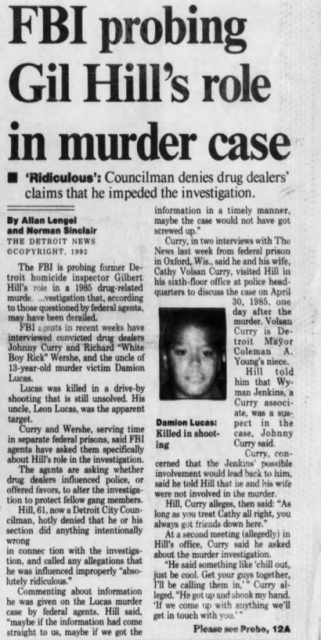
The late Gil Hill framed Eddie Jo Lloyd, juvenile lifer Charles Lewis who spent 44 yrs. in prison before his release, others
To date, however, the child’s murder has not been solved or the perpetrators charged.
Egan said Harris, 62 on his release, was “legally blind” and suffering from diabetes and hypertension. But nine years after his release, Harris appeared to be relaxed and thriving during an interview by Ben Solis of MLive in July, 2017.
Solis interviewed Harris and retired Detroit police officer Tom Robinson together on the 50th anniversary of the 1967 rebellion in Detroit.
Solis erroneously described Harris as “retired.” He evidently did not know that Harris left DPD in disgrace, sentenced to 30 years in prison for guarding global drug dealers as they imported large quantities of cocaine into a city reeling from the effects of the crack cocaine epidemic. And Harris evidently didn’t think to correct him.
Solis wrote, “Even as they describe rampant racism in the force during the 1960s and 1970s, Harris and Robinson vehemently defend police officers of all stripes, even Walter Budzyn and Larry Nevers – who were convicted in the 1992 murder of Malice Green. Robinson said he knew both of them, and said they were ‘excellent officers.’
“While many Detroiters refer to the 1967 riot as a rebellion, born out of years of economic discrimination, Harris doesn’t buy it. ‘If you lived in Detroit in 1967, jobs were plentiful,’ he said.”
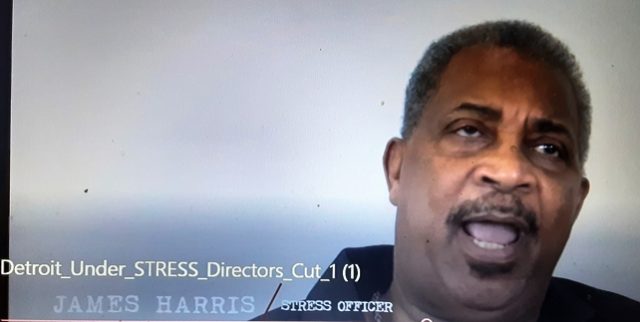
James Harris called S.T.R.E.S.S. a “worthy” effort in the 2018 documentary, “Detroit under S.T.R.E.S.S.,” boasting that white and Black killer cops in it got along well. The documentary ironically cites the drug trade as a leading cause of crime in Detroit.
RAYMOND PETERSON: Among the S.T.R.E.S.S. cops that Harris got along with. Peterson had the highest “kill” rate in the unit. Interview above is from the documentary “Detroit Under S.T.R.E.S.S.” (VOD’s apologizes for Peterson’s use of the “N” word and other profanities, but his language exposes his racism.)
http://lawenforcementcorruption.blogspot.com/2008/11/prosecutor-son-hail-pardon-of-ex-cop.html
https://www.mlive.com/news/detroit/2017/07/for_black_detroit_cops_the_196.html
Two Chief Prosecution Witnesses Recanted During Trial, Denied Earlier Statements
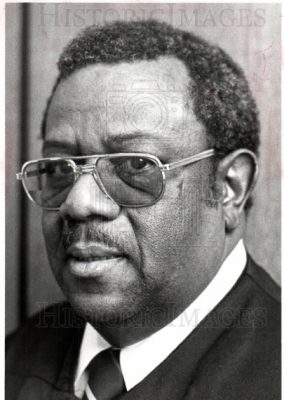
Recorders’ Court Judge Henry Heading.
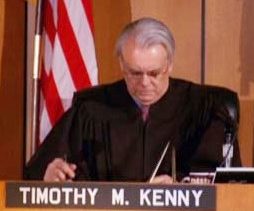
AP Timothy Kenny later became Chief Judge of Wayne Co. Circuit Court.
Ricky Rimmer-Bey and his co-defendant Timothy Jordan were charged, tried and convicted on Feb. 11, 1976 for the robbery/ murder of Delta Motor Sales car lot dealer Joseph Kratz on Aug. 7, 1975. The car lot was located at 17711 Van Dyke between East Davison and E. Nevada in Detroit.
The Assistant Prosecutor assigned to the case was Timothy Kenny, now Chief Judge for the Wayne Co. Third Judicial Circuit Court. Kenny worked as an AP for 20 years prior to becoming a Recorder’s Court Judge in 1996, and later was elected to the Wayne County Third Judicial Circuit Court.
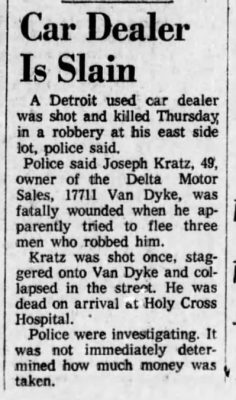
AP account of murder of Joseph Kratz.
He became the chief trial attorney for the Prosecutor’s Office during his tenure there, working side by with current Wayne Co. Prosecutor Kym Worthy, who joined the prosecutor’s office in 1984. He became a Recorder’s Court judge in 1996, and later a Wayne County Third Judicial Circuit Judge.
The Michigan Court of Appeals affirmed Rimmer-Bey’s felony murder conviction, but vacated the armed robbery conviction on June 21, 1978. The Michigan Supreme Court denied appeal on January 30, 1985. Rimmer-Bey subsequently filed a habeas appeal which was heard in the U.S. District Court.
“The district court initially granted the petition, finding that Rimmer-Bey’s constitutional rights were violated by the state trial court’s erroneous evidentiary ruling,” the Sixth Circuit Court said in its later ruling.
The District Court withdrew its ruling when the State Attorney General objected.
The Sixth Circuit held that the trial court’s evidentiary ruling, although a violation of Rimmer-Bey’s due process rights, was harmless beyond a reasonable doubt, then went on to render the same opinion, likewise denying relief.
But the Sixth Circuit did find that Rimmer-Bey had been denied his constitutional right to confront an alleged accomplice witness, one of two named in the Court’s opinion. Neither was ever charged for the crime. A third alleged accomplice named in the opinion was killed a short time later, some claimed by police. A fourth alleged accomplice was also dead by the time of the trial.
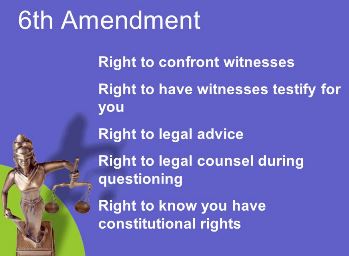 “Rimmer-Bey claims that the trial court erroneously excluded from the jury’s consideration evidence that an accomplice witness had recanted his preliminary examination testimony which implicated Rimmer-Bey,” said the Sixth Circuit. It noted that the witness had indeed signed a sworn statement during the trial, recanting his previous testimony implicating Rimmer-Bey at the exam.
“Rimmer-Bey claims that the trial court erroneously excluded from the jury’s consideration evidence that an accomplice witness had recanted his preliminary examination testimony which implicated Rimmer-Bey,” said the Sixth Circuit. It noted that the witness had indeed signed a sworn statement during the trial, recanting his previous testimony implicating Rimmer-Bey at the exam.
Trial transcripts show that the witness then told Judge Heading, outside the presence of the jury, that he was willing to testify truthfully at trial. He was sworn in and told Judge Heading that officers had told him falsely that the defendants killed his brother. He said, “Well at the time I had lost my brother and I was thinking revenge.” He told Heading that the first statement he gave to the police was false.
At that point, AP Kenny intervened and said that the witness could face charges for giving false statements to the police and at the preliminary exam. The witness however persisted in declaring that he still wished to testify in open court. Judge Heading then asked the witness if he wanted an attorney to advise him of his rights.

Atty. Warfield Moore Jr., later elected Judge
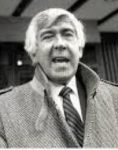
Atty. Gerald Lorence, 1987.
The witness agreed, and Heading appointed defense Attorney Gerald Lorence to do so. After meeting with Lawrence, the witness told the Judge he wished to invoke his Fifth Amendment right not to testify because it might incriminate him.
At AP Kenny’s request and over the objection of both Rimmer-Bey’s defense attorney Warfield Moore, Jr., as well as the attorney for Jordan, Heading held that the witness was not available, although he remained present in the witness room.
Heading then admitted the witness’ recanted testimony from the preliminary exam, which was read into the record in the presence of the jury. Despite the insistence of the defense attorneys that the jury had a right to hear that the witness had recanted that testimony during his meeting with the judge, Judge Heading refused to allow the jury to hear about the recantation.
The Sixth Circuit ruling continued, “The basic right of confrontation, including the opportunity to test credibility of witnesses through cross-examination is what a fair trial is all about. Davis v. Alaska, 415 U.S. 308, 315-16 (1974). A trial court may not deny a defendant’s exploration of a witness’ bias, prejudice or motive for testifying. Id. See also, Delaware v. Van Arsdall, 475 U.S. 673, 681 (1986).
“We find here after a review of the record that the trial court’s evidentiary ruling constituted a deprivation of Rimmer-Bey’s constitutional rights. Rimmer-Bey was denied his right of confrontation, including the opportunity to evaluate Smith’s credibility.”
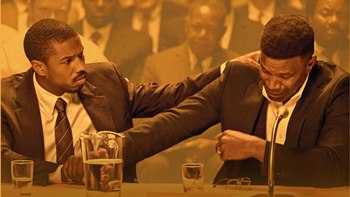
In the movie “Just Mercy” witness recantation saved defendant from execution, freed him.
However, the 6th Circuit found that the denial was “reversible error,” stating that the testimony of another alleged accomplice witness along with that of a bystander witness was substantive enough to sustain the conviction.
But the trial transcripts show that the second witness, age 16 at the time of the car lot murder, denied that he had seen anything directly implicating Rimmer-Bey or Jordan, although he did place himself and the others at the scene of the crime.
He failed to testify first of all that he saw the defendants with weapons on the days of the murder. AP Kenny told the Judge out of the presence of the jury that he was “taken by surprise” at the testimony, and wanted to show him his previous statements to impeach him as a hostile witness. Judge Heard then agreed to read an instruction to the jury that this was not to be termed “substantive evidence,” but only to allow them to assess the defendant’s credibility.
Kenny read the young man, who was 16 at the time of the murder, a statement he said the witness had given to Sgt. Harris, indicating that he saw the defendants shoot at the victim with their guns. The witness denied saying that he saw them shoot at or chase the victim. He denied seeing Rimmer-Bey go out into the street to get money, allegedly from the robbery, and denied seeing the victim run out into the street.

DPD Sgt. James Harris and Wayne Co. Asst. Prosecutor Timothy Kenny coerced 16-yr-old witness into statement vs. Ricky Rimmer-Bey; the witness denied most of it at trial.
“I didn’t see him shoot or chase him with a gun,” the witness said about Rimmer-Bey. He said he had told Harris that he did, but it was not true. He named another individual he said brought the guns to their car and took them afterwards. AP Kenny went round and round with him until he finally said he saw Rimmer-Bey with “some” money.
Later, the issue of who killed the third accomplice came up, and the witness said, “I heard the police killed him.” The deceased third accomplice was a brother to the first witness and a good friend of the 16-year-old. The 16-year-old testified on the record that police falsely told him the two defendants killed the third accomplice.
The witness testified that he had been charged in the case in juvenile court. Moore asked him, “You didn’t want to stand trial in this matter, so that’s part of the reason that you’re here to testify, is that right?” The witness responded “Yeah.”
The Sixth Circuit decided against Rimmer-Bey’s claim regarding the right to confront his witnesses, but under a new Michigan court rule, he still has the right to raise new evidence as well as the issue of his innocence in a motion for relief from judgment.
MI. COURT RULE GIVES RIMMER-BEY OPENING
The Michigan Supreme Court revised Michigan Court Rule 6.508(D) effective May 1, 2020 to allow for the trial court to consider claims that have been decided against the defendant if s/he has “new evidence” that would “make a different result probable at retrial, or if the previously-decided claims, when considered together with the new claim for relief, create a significant possibility of actual innocence.”
MICHIGAN COURT RULE 6.508 D(2) as revised
Effective May 11, 2020, the Michigan Supreme Court ordered new language to be added to MCR.6.508(D)(2):

http://voiceofdetroit.net/wp-content/uploads/MCR-6.508-D2-as-revised.pdf
The Michigan Supreme Court overturned the conviction of Rimmer-Bey’s co-defendant Timothy Jordan in the case on June 30, 1982 and remanded it for a new trial.
“The trial court’s instruction that it had determined as a matter of law that the defendant’s confession was voluntarily given was reversible error,” the high court ruled. “The question of the voluntariness of a confession is solely a matter for determination by the trial judge, not the jury. However, by informing the jury that he had found the confession to be voluntary, the trial judge deprived the defendant of his right to have the existence and credibility of the confession determined by the jury.”
“MY MEASURE:” RIMMER-BEY 44 YRS. LATER
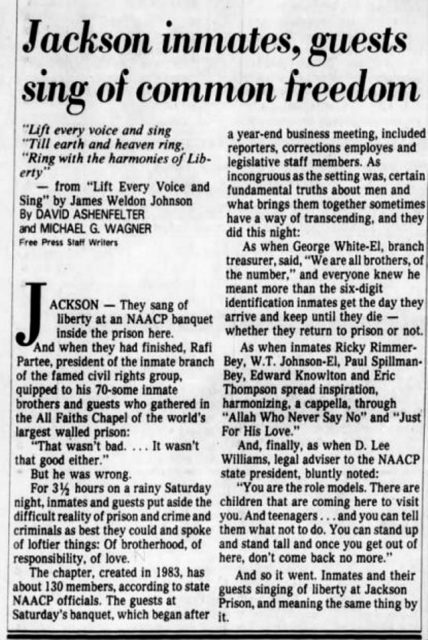
This Free Press article, dated April 14, 1986, describes songs done by Ricky Rimmer-Bey and others a cappella, as part of a banquet given by the newly-formed prison chapter of the NAACP.
Despite what he says is the theft of his whole life by James Harris, Rimmer-Bey has survived and fought back against the brutal conditions he has experienced, writing of them in his pamphlet autobiography, “The Measure.”
Rimmer-Bey joined the Moorish Science Temple of America in 1983 and was later elected Acting Assistant Grand Sheik under Bomecca Bey, then Acting Grand Sheik. This has given him a religious and political context for his many years of incarceration, he says.
As described in the article at left, he became part of the newly-formed prison chapter of the NAACP, singing spirituals affiliated with his new religious beliefs.
He also joined the National Lifers of America, which has thousands of chapters throughout the U.S. The NLA provides an opportunity for its members to organize together for better conditions, and to influence criminal justice policies, including death by incarceration, in mainstream forums.
In “My Measure,” his autobiography, Rimmer-Bey recounts his first meeting with the woman who became the love of his life, Torchisa Marchett Hall, while he was in Jackson Prison in 1986. A woman friend of a fellow prisoner gave Ms. Hall his information, and she came to visit him.
“She was stunning,” recalls Rimmer-Bey. “When she came through the gates, I gently took her hand and stated, ‘Are you my blessing from Allah’ and tried to kiss her on the cheek. She immediately pulled back, saying ‘NO, I’m your visitor.” I smiled and we went to our assigned seats. . . She stayed in my life on and off for 34 years, traveling from prison to prison to see about me. I will always love her for she is a beautiful spirit.”
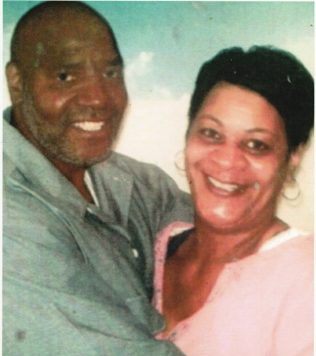
Ricky Rimmer-Bey, Torchisa Marchett Hall
He recounts how while he was enrolled in Jackson Community College in 1986-87, 23 credits short of obtaining his associate’s degree, he was criminally charged with the attempted murder of a corrections officer and transferred to the Ionia SuperMax prison at Level VI, reserved for the most dangerous prisoners in the MDOC. He was acquitted in Jackson County Circuit Court in 1988, but kept confined in “administrative segregation” (the hole) from 1987 to 1993.
In 1994, he says he was again falsely charged, this time in the death of another prisoner. He was transferred to various Level 5 prisons subsequently, despite the fact that an internal investigation had cleared him. He ended up back in the hole for another five years until 2010, when he was finally transferred to a level four facility.
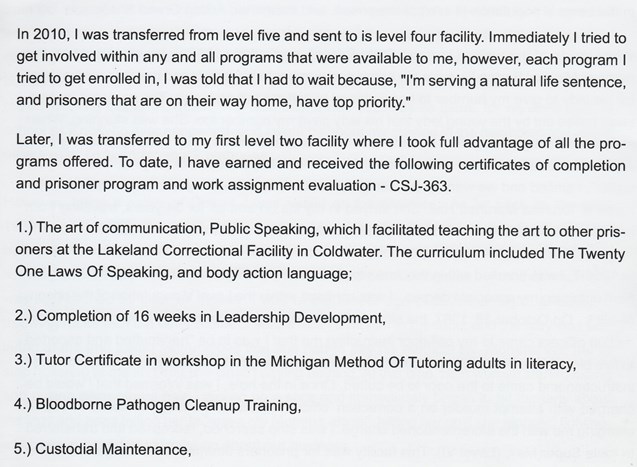
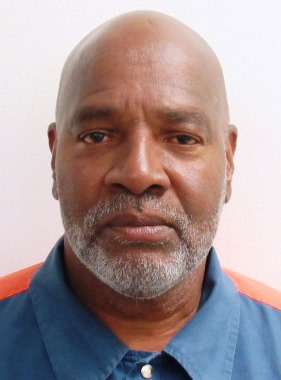 I AM NOT BITTER, BUT I DO HOPE AND PRAY THAT RESTORATIVE JUSTICE PHILOSOPHIES AND PRACTICE PROVE TRUE IN MY HAVING A SECOND CHANCE AT LIFE ON THE OUTSIDE. Ricky Rimmer-Bey
I AM NOT BITTER, BUT I DO HOPE AND PRAY THAT RESTORATIVE JUSTICE PHILOSOPHIES AND PRACTICE PROVE TRUE IN MY HAVING A SECOND CHANCE AT LIFE ON THE OUTSIDE. Ricky Rimmer-Bey
Write Ricky Rimmer-Bey at:
Ricky Rimmer #133464 1728 Bluewater Highway
Ionia, MI 48846
________________________________________
*********************************************** Donations for the Voice of Detroit are urgently needed to keep this paper, which is published pro bono, going. Among ongoing expenses are quarterly HostPapa web charges of $380. costs for research including court documents, internet fees, office supplies, gas, etc. The editor and reporters are not paid for their dedicated work, and many live on fixed incomes or are incarcerated. Please, if you can:
Donations for the Voice of Detroit are urgently needed to keep this paper, which is published pro bono, going. Among ongoing expenses are quarterly HostPapa web charges of $380. costs for research including court documents, internet fees, office supplies, gas, etc. The editor and reporters are not paid for their dedicated work, and many live on fixed incomes or are incarcerated. Please, if you can:
DONATE TO VOD at
https://www.gofundme.com/VOD-readers-up
**************************************************************





I pray that you receive true justice. Stay strong because it won’t be long before you get home. Bless you.!!
I was in prison with him. What a great leader. Everybody respects this man for standing up for what is right. I have heard stories of him getting beat and starved in the hole for telling the police what is law and helping people with legal work. Now even the correctional officers respect him and his reputation . He is like a god amongst men at every facility . I’m doing a short story on him on YouTube . Michigan prison rules is what it will be titled and how he enforced them with lOve.
ByrdEl . Islam !